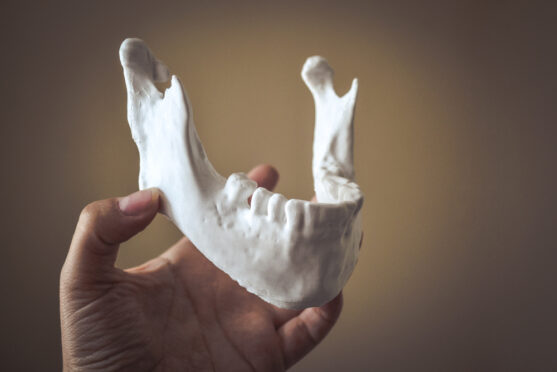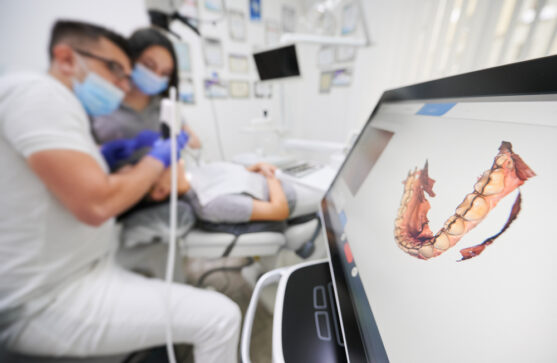Dr Suneel Kaushik Komanduri, Surgical Oncologist, Onco Cancer Centres, explains the use of the latest 3D printing technology in oral cancer surgeries.
Oral cancer is one of the most common cancers in our country. Every year over 77,000 people are affected with oral cancers. It is most common between 30 – 60years of age.
Oral tumors arising from the lip, cheek lining and gums can affect the jawbone. Tobacco use increases the risk of developing this tumor.
Surgery is a very important part of the treatment of these cancers. Surgery for oral cancers can cause facial deformity and may need plastic surgery reconstruction to restore the form and function. Often these plastic surgeries take several hours and the result may sometimes be cosmetically inappropriate.
Latest advances in 3D printing technology have been used to guide reconstructive techniques in cancer surgery.

What is virtual surgery or 3D printing technique?
The 3D printing technique helps prepare a model of the face, which the surgeons use to plan cancer surgery and thereafter, to reconstruct the face with precision.
How is this technology used to plan cancer surgery?
Usually, a CT of the head is done as a part of the cancer treatment. This is used to understand the extent of disease. This CT is used by technologists to develop a 3D model of the facial bones. The cancer surgeons and plastic surgeons then plan the surgery. The 3D model and guides are used during surgery to precisely execute the planned surgery.

How can this 3D model help in reconstruction?
Removal of a big chunk of flesh and jawbone disfigures the face. Reconstruction of the face using plastic surgery is required to restore the original shape of the face. Using the 3D technique, doctors prepare a three dimensional model of the face. The doctors then harvest fibula bone from the lower leg and re-shape it based on this 3D model and place it using titanium plates where the jawbone was existing before cancer surgery. The fibula bone reshaped using 3D technique now functions as a jaw.
What are the advantages of the 3D model?
Without the 3D model, the doctors have to guess the reconstruction, and the reconstructed jaw bone may not exactly match the other half of the face. The technology helps regain more or less the facial features they had earlier. Having a preexisting plan helps the surgeons execute the procedure with accuracy and precision.
Who is eligible for this technology?
Those patients with cancers affecting the jaw bone and requiring its removal as a part of their cancer surgery can benefit the most from this technology. The procedure can be used for other non-cancerous problems requiring removal of the jawbone like Ameloblastoma and fibroma. 3D printing technology has the potential for wide applications in skull base surgery and developing prosthesis for rehabilitation.
Are you suffering from mouth ulcers due to oral cancer, get the best recipes here. These recipes will help you eat better.
Read the true story of a caregiver whose father suffered from oral cancer.

